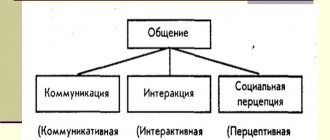Someone is given the ability to be a leader and lead people, and someone can do their job perfectly. How do you understand which camp you belong to: leaders or performers? I devoted a lot of time to studying this issue and came to a number of conclusions that I am ready to share today.
Let me start with the fact that a manager is not just a position. This is a specific way of thinking and a special “cocktail” of personal, professional and business qualities. I’ll tell you which ones in detail now.
Who is a leader?
A manager (chief, director) is a person who makes decisions and is responsible for the consequences of these decisions. The number of subordinates does not matter: there can be 1000 of them, or maybe just 1.
A manager must have the makings of a leader. Not everyone has leadership qualities, but they can be developed.
The main task of any manager is to organize the work of his subordinates, who must perform their assigned duties efficiently and on time. Work in a team should be organized in such a way that after the leader gives an order, he no longer returns to this issue. Its goal is to ensure the productive work of the organization's employees.
If the head of an enterprise independently performs the work or for some reason cannot organize the productive activities of his subordinates, this indicates that there is no leader in the organization.
Main characteristics of a leader:
- Competence. A manager should have a good understanding and be able to perform any work of his company better than his subordinates doing this work.
- Communication skills. The director must be able to properly build relationships with his colleagues, encourage them to work, and help, if necessary, understand difficult situations. His unspoken responsibilities include the ability to find a common language with different people and under different circumstances.
- The interests of the company must come first for him. Own ambitions, career growth, and the desire to get rich are inherent in most management representatives. But for a leader, what is more important is the prosperity of the company and what he leaves behind.
- The ability to discern a potential leader in a person. A wise leader knows how to bet on others. He transfers his knowledge and skills to his subordinates, shares his experience, promotes career growth, professional development and promotion of talented employees.
- Ability to plan. One of the main characteristics of a competent leader is the ability to plan his own activities and the activities of other people. Proper planning helps achieve high results.
- Determination and willpower. Only the leader who is focused on great achievements and victories will be able to lead his company to prosperity.
- Responsibility is the quality of a leader who heads a company and makes important decisions. He influences everything that happens in the company and does not allow outside interference in the course of events. He is aware that everything that happens in his company is the result of his activities and the decisions he makes. He does not shift his blame onto his subordinates and is ready to stand up for them if necessary.
- Commitment to development. Rapid progress and the emergence of new technologies require constant learning and self-improvement. A leader must be able to easily adapt to changing work conditions. Completing various trainings and advanced training courses is a prerequisite for productive work in a leadership position.
Prepare to evaluate your leadership.
Here and below photo pixabay.com
Any boss wants his subordinates to listen to him, respect and appreciate him (sometimes even admire him), but at the same time he often has to be strict, cut salaries and fire employees.
However, as it turned out, a good boss is characterized not by how strict or, conversely, how soft he is, but by some other indicators. To identify them, a group of scientists from the University of London conducted a study in which 28 thousand employees of different organizations were surveyed.
They all spoke about the professional and personal characteristics of their bosses, as well as the degree of satisfaction with their work. This allowed us to identify seven main signs that distinguish a good boss from a bad one.
Successful leader. His qualities
To become a successful leader, it is not enough to have the necessary character traits. It is necessary to develop a behavior strategy and management style.
Characteristics for a manager is a document that contains a list of the personal qualities and professional merits of the manager. This list most often includes the following qualities:
- enthusiasm;
- The will to win;
- energy;
- ability to take risks;
- constancy;
- ability to organize and rally a team;
- individual approach to employees;
- ability to delegate responsibilities and powers;
- high level of intelligence;
- ability to prioritize;
- awareness of professional issues;
- developed intuition;
- ability for strategic thinking;
- insight;
- creative thinking;
- a tendency to soberly assess the environment and one’s own strengths.
Business and professional qualities of a leader
A good leader must have a set of professional qualities. These qualities indicate that a person is competent in his field. Without them, he cannot occupy a leadership position:
- Relevant education.
- Experience.
- Awareness of professional issues.
- Knowledge of your field of activity and related fields.
- Additional skills required for work (knowledge of computer programs and foreign languages, ability to drive, etc.).
Business qualities include those that help organize the work process. These qualities are called managerial:
- Skills in planning your activities (planning).
- Understanding time management.
- Willingness to improve yourself and your skills.
- Critical thinking.
- The ability to rethink what is happening and draw the necessary conclusions.
- Erudition.
- Ability to teach others.
- The ability to easily assimilate new information and find new methods of work.
- Teamwork skills.
- The ability to inspire and lead people.
- Ability to create a positive work environment.
- Management skills.
- Ability to achieve goals and work for results.
- The ability to distribute attention and keep facts of a different nature in mind.
- Logical thinking.
- Initiative.
- Quick resolution of pressing issues.
- Ability to identify priority tasks and goals.
- The desire to win.
Determining the primary personal qualities of a leader and their development
The primary personal qualities of a leader are qualities that allow him to act effectively and implement his plans. These qualities include:
- Honesty.
- Conscientiousness.
- Responsibility.
- Mental health.
- Balance, self-control.
- Responsiveness.
- Goodwill.
We can highlight character traits that are not inherent to everyone, but which a person holding a leadership position must have:
- positive attitude towards the surrounding world;
- self-confidence;
- sociability and ability to win people over;
- stress resistance;
- natural charm;
- philanthropy;
- organization;
- ambition;
- determination;
- sense of justice.
If any of the listed qualities are not inherent in the director of the enterprise, then it is necessary to work on their development, making great efforts.
How can a manager develop leadership skills?
When occupying a leadership position, you need to be able to create a team of like-minded people around you who would try for the benefit of the company. But not everyone has the skills to manage effectively. Various trainings and the study of specialized literature can come to the rescue.
If it is difficult for a manager to find a common language with subordinates, it is necessary to seek a compromise: give up conflict-free behavior, hold short meetings more often, at which employees will have to report on the work done and the results achieved. Thus, the manager will make it clear that he controls the work process.
You must learn not to give in to the pressure of your subordinates. Manipulation is a behavior style of many people. In some situations, employees can purposefully provoke a manager into conflict in order to play on his feelings of guilt and achieve their goals.
When a conflict situation arises, you need to be able to abstract yourself and switch your attention. Psychologists recommend imagining your opponent in some funny way.
To reflect the negative emotions of others, you need to block them:
- stand up straight, straighten up, pull your shoulders back;
- do not listen or respond to the words of the interlocutor;
- maintain calm and self-esteem.
Using these simple techniques, you can develop leadership qualities and increase your authority in the team.
How can a manager develop managerial qualities?
To overcome communication difficulties and develop the strengths of your personality, you need to use the following management tools:
- Understand the importance and order of application of management methods.
- Understand the principles of combining motivation and coercion.
- Identify the main tasks of operational management regarding penalties and prevention of incorrect actions.
- Be prepared for the fact that at first it will be difficult to apply these methods, and the results may not live up to expectations. But in the future this will have a positive impact on professional activities.
- Understand the principles of influencing employees and apply them in practice.
- Move away from stereotypical thinking and perception of the surrounding reality.
A manager must be able to objectively evaluate himself and his employees. This will help improve management efficiency.
Before using different techniques, you need to analyze your character, strengths and weaknesses of your personality. After this, it is recommended to make a list of difficulties and obstacles that arise in the process of management activities. They must be subjected to in-depth analysis and it is necessary to identify which of the above favors the re-emergence of a particular negative situation.
Having identified the cause of the negative trend, you should begin to work through your shortcomings and look for the correct algorithm of behavior.
The most important mechanism for increasing labor productivity is such a concept as reflection. This is a process aimed at knowing oneself and coordinating one’s actions, as well as a method of analyzing a subject from various angles, summarizing the accumulated experience and creating a holistic picture of the events taking place. Reflection promotes the work of consciousness in different modes, allows you to consider your actions as separate elements and as a whole.
By using the reflection method, a person can more clearly assess his line of behavior and make the right decisions.
The concept of position occupies an important place. This is the relationship of the subject who performs the action to the object on which this action is performed. This relationship is determined by the reasons, functional position and competence of the subject.
The reflection technique is a set of methods and means designed to move from one position to another. To develop a tendency to reflect, it is necessary to carry out the following stages of reflex transformation:
- formation of reflexive behavior;
- development of intelligence;
- frequent use of the reflection method in one’s professional activities;
- improvement of professional skills.
The influence of leader qualities on leadership style
An important aspect is how the director puts his managerial qualities into practice. The ideal manager has his own unique management style, which leaves an imprint on the company's activities.
The formation of individual style is influenced by factors such as:
- intelligence;
- level of culture;
- degree of professional training;
- character and temperament;
- moral values;
- attention to the needs of the team;
- leadership qualities (the ability to lead people and at the same time adopt positive qualities from them);
- the ability to captivate with your enthusiasm;
- intolerance towards negative character traits and inactivity of people.
The personal qualities of a manager are directly reflected in the work of subordinates, their degree of satisfaction with the work process and working conditions, as well as on the level of motivation and interpersonal relationships in the team.
The main factors that determine leadership style are:
- requirements described in the manager’s qualification characteristics;
- goals and objectives of the company, technology and management structure, functionality of the manager;
- forms of organization of the labor process, availability of material and human resources;
- features of professional training of employees, their competence, the nature of formal and informal relationships established in the team, its values and traditions.
To effectively manage a team, a director must have the following skills:
- professional;
- organizational;
- communication skills.
Leadership style is closely intertwined with management method. A method is a method that is used to achieve set goals.
A management method is a set of techniques for the manager’s conscious influence on employees and teams, which ensures coordination of their activities.
Management methods and means include:
- order;
- order;
- request;
- advice;
- offer;
- personal experience;
- assistance in solving difficulties that have arisen;
- creating social consciousness in the team;
- punishment;
- financial incentives;
- call to duty;
- anger;
- OK.
In management, there are 4 classifications of management methods:
- Administrative.
- Organizational and pedagogical.
- Socio-psychological.
- Economic.
Administrative ones include:
- creation of a management structure;
- formation of administrative norms;
- issuance of orders and regulations;
- development of job descriptions.
Such methods are effective if the following conditions are met:
- the feasibility of using each management decision;
- consistency and logic of requirements;
- adequate persistence and willpower in implementing decisions;
- maintaining priority in achieving goals.
Organizational and pedagogical techniques are aimed at training company personnel through the use of all forms of methodological activities:
- consultations;
- workshops;
- open classes.
These methods help create conditions for further professional growth of subordinates and improve the quality of their work.
Socio-psychological techniques are aimed at nurturing the spirit and creating a favorable moral climate in the team. To unite the team, it is necessary to show endurance and patience. To effectively influence the audience, diction, facial expressions, voice timbre, and gestures are used. Through these techniques, a director can gain influence and gain respect.
Economic methods include the use of material incentives, drawing up estimates, creating economic norms and standards, etc.
One of the main professional qualities of a manager is the ability to rationally manage the financial assets of an enterprise.
How to lead a team without experience
Many managers dream of heading a department and managing a team. It is not enough just to become a leader; you also need to be able to hold on to this position.
What a new director should know
According to statistics, the main reason for employee dismissal is the lack of a common language with management. Therefore, a leader must be able to listen carefully to his subordinates. You need to communicate not only through emails, but also in person.
The boss must know how to inspire the team. Especially when it comes to creative work. Before starting work, indicate the importance of each employee's work.
A manager should be able to motivate the team. Sometimes it is enough to take the initiative and be the first to take on a large amount of complex work.
In any team there is a genius who thinks outside the box and refuses to work in a team. Over time, it becomes uncontrollable. You need to be able to identify such individuals and, if possible, get rid of them immediately. Otherwise, it will not be possible to establish teamwork.
What a manager should be able to do
Formulate department development goals and tasks that need to be completed to achieve results.
Use company resources wisely. These include: material resources, capital, information and time. The value of each of them changed with the development of humanity. Today information is a priority. The leader's task is to competently build the internal structure of the organization.
Be able to motivate employees. For this purpose, you can use external incentives (social package, fines, teamwork), as well as the desire of employees to develop.
Monitor the situation at all stages. Before starting a project, available resources are analyzed. The purpose of intermediate control is to evaluate the implementation of each stage. At the final stage, the achieved result is compared with the set goal. You can only delegate control to subordinates in the first two stages.
Rules for a good chef
- Divide labor in order to get a large amount of work done efficiently.
- Where authority arises, responsibility also arises. She is a strong motivator in urgent projects. Sometimes only moral responsibility can keep an employee from giving up.
- Discipline in a team is based on the authority of the leader.
- Ideally, an employee should receive orders from only one superior. Today, the boundaries of hierarchy have been pushed back. Orders can be issued simultaneously by the heads of several departments. It is important here that the orders do not contradict each other.
- The interests of one person should not prevail over the interests of the organization as a whole. Otherwise there will be a dictatorship.
- Loyalty and support of employees can be ensured by a stable salary.
Leader effectiveness
A person holding a leadership position must develop in all areas: improve his qualifications, level of education, improve his knowledge and skills.
To analyze the effectiveness of a manager, it is necessary to take into account many factors, including:
- increasing labor productivity;
- growth of fixed assets;
- speed of fund turnover;
- increase in profits.
If the result on these indicators is positive, the director’s activities can be considered effective.
Knowledge
To be appointed to the position of head of a company, you must have at least a higher specialized education. In addition to this, you need to have a good understanding of economics, management and psychology. Professional knowledge implies an understanding of the relationships between various processes and the search for optimal options for solving assigned problems.
The strengths of a manager include the ability to competently manage a team, achieve high financial performance, comply with civil and labor laws, understand taxes, budgeting, and conduct personnel policies.
Stiff competition and time constraints must be taken into account. A modern manager must speak at least 1 foreign language, be able to drive a car, and have knowledge in related professions.
The director of an enterprise must understand the activities of all departments of his company:
- production workshops;
- branches;
- legal service;
- accounting;
- HR department;
- supply department;
- marketing department;
- logistics;
- archive, etc.
Responsibility for the work of all these departments lies with the director (regardless of the field of activity of the enterprise). Thus, he must have a wide range of knowledge to effectively organize work and control the implementation of assigned tasks.
Skills
A manager's professional skills characterize his ability to quickly respond to various changes, interact with people, and achieve high results. Here it is necessary to emphasize the following qualities:
- Balance is the ability to take control of your emotions. This is the main quality of a leader: to remain calm in various situations and set an example for your colleagues.
- Self-confidence is the main personality quality necessary for interacting with others. A confident person always remains calm. Subordinates will follow the example of such a leader. Such relationships between the director and the team will create a favorable atmosphere in the enterprise.
- Resilience to stress helps you maintain clarity of thought. Such a person will not get lost whenever a problem arises; he will be able to maintain calm in the team. Making important decisions in any situation is the key to career success.
- The desire to win. This character trait is characteristic of confident individuals. The desire to achieve a positive result provides an incentive for career advancement. Enthusiasm is contagious, and the company's employees will also strive for achievements.
- The presence of organizational skills implies the skills of quickly assessing the situation, identifying primary goals and clearly calculating the time to solve them. Such inclinations are not only innate, they can be developed in the process of working on oneself. A competent manager evenly distributes the amount of work between subordinates and controls its implementation.
Skills
Skills are an important component of any type of activity. They reflect accumulated knowledge and experience gained. Professional skills represent knowledge that is constantly being improved.
The main business qualities of a manager are:
- Logical and critical type of thinking (practical intelligence). It is easier for a person with such a mindset to work with large amounts of information, discarding everything unnecessary and not being distracted by trifles.
- Carrying out a large number of tasks at the same time requires endurance and composure, and quick response skills. You must be able to use all your abilities and hidden potential to make the right decisions.
- A manager must be able to feel other people and understand the hidden motives of their actions. This skill is called social intelligence. A person with such abilities has a good understanding of people and knows what to expect from an employee. He understands well that for effective work it is necessary to create a healthy microclimate in the team and motivate his employees.
- Adequate self-esteem, a tendency to analyze one’s actions, self-criticism, choosing the right line of behavior - such abilities are the privilege of a manager. Low self-esteem and self-doubt hinder the full perception of information, and overestimated self-esteem often leads to the fact that planned plans turn out to be impossible.
- Knowledge of economics and marketing. For an enterprise manager, it is not paramount to master all the nuances of the technological process and the work of each employee. His responsibilities include understanding the process and product quality, its compliance with standards and market requirements.
Habits
The director needs to understand that he is an example for his subordinates, so he must imagine what he wants his employees to be like:
- collected;
- delicate;
- active;
- scrupulous, etc.
If a boss wants to ensure that his team does not use obscene language during communication, then he needs to prove to his subordinates by his own example that it is possible to communicate without using obscene language. In the subconscious, subordinates will form a model of behavior in which a successful person communicates politely and culturally. Demanding that others follow any rules, you must directly adhere to them in life.
If the words and actions of the boss differ from each other, such a situation will not contribute to the formation of a respectful attitude towards him on the part of his subordinates. What a person brings into the world with his behavior, habits and appearance speaks for itself.
Habits are a reflection of a person’s personality, but in the process of daily activities a person ceases to notice them. Only those who have the makings of a leader can recognize their strengths and weaknesses, admit their shortcomings and work to correct them. The process of self-improvement should not stop.
A competent leader knows how to manage his subordinates, because he has mastered management skills, without which it is impossible to lead a team.
Characteristics of a good leader:
- setting high goals;
- finding the right approach to colleagues;
- staff development;
- promoting your products on the market;
- establishing relationships with key clients and investors;
- rewarding the company's employees for their contribution to its development.
The boss's leadership should be such as to stimulate employees to grow and develop.
How to manage your time
Time is priceless. Take care of him
Everything on earth can be replaced by something, but not time. Therefore, you must definitely learn how to manage it. Determine what you spend it on. And if there is little productivity, reduce the time for this process as much as possible.
Time management can be divided into three stages:
Registration
It takes a certain amount of time to complete any job. And you need to learn to analyze it. By recording time spent, you can identify ineffective actions that need to be eliminated.
Control
Useful and necessary things need to be done according to plan. Poor management of the entire production process takes up a lot of time. And a good leader shouldn’t have this.
Hard and soft leadership
The main feature of modern society is the choice of management style or type of managerial leadership. Leadership aptitudes and qualities form the basis of management skills. There are 2 types of managerial leadership, depending on the approach to management: soft and hard leadership.
Soft Leadership
Soft leadership involves the coincidence of interests of employees and the company's leader. The director of such a company is interested in attracting personnel with the appropriate skills and knowledge, and a high level of professionalism. With this management method, effective feedback and a system of delegation of authority are formed. An important aspect is the level of staff satisfaction with their work.
Tough Leadership
Strong leadership is based on unquestioning submission to management. The company does not waste resources and energy on attracting qualified employees, but works with those who are already working on staff. This model provides for obtaining high performance with minimal expenditure of effort, time and financial resources.
A leader who adheres to a strict management method must be persistent and charismatic, be able to persuade, influence and maintain distance between himself and his subordinates.
What role to play?
Hard leadership is more often used in companies than soft leadership. But world practice has shown that a soft approach to personnel management helps to achieve better results. Such companies have more competitive advantages. But building a management system based on trust and mutual support is not easy.
How to become a boss with a soft character
It is believed that liberals cannot become leaders due to their humanity and tendency to connivance. Instead, the team is managed by informal leaders.
To become a good leader, you need to find an ambitious person and make him your advisor. Then, with its help, build a management structure and influence the team using the “kind director - strict deputy” model.
A democratic leader must be:
- proactive, responsible;
- be creative at work;
- be able to persuade;
- develop ways to achieve the goal.
Such specialists are expected in highly developed teams, where each employee is well motivated and can justify their point of view on the problem.
You should start your management career with your own life: set goals for yourself, move towards the goal. Communicate with people who have achieved professional success and are ready to give practical advice.
Necessary personal qualities of a leader
The manager's profile should reflect all the strengths of the manager's personality. It should be capacious and meaningful. To occupy a leadership position, you must have a large arsenal of personal qualities: moral, physical, psychological and mental.
Memory Features
A company manager must be able to process large amounts of information in a short period of time, without losing sight of important details. He should have well developed various types of memory:
- visual;
- auditory;
- motor;
- emotional;
- logical;
- short-term;
- long-term.
Intelligence
An important component of intelligence is flexibility and efficiency of thinking. To increase the effectiveness of his work, a person must use such types of thinking as conceptual, figurative and effective. At the same time, it must have a clear practical orientation, since under severe time pressure it is unacceptable to put forward a large number of different hypotheses.
Optimal self-esteem
In order for activities to lead to the achievement of the desired result, the director must have adequate self-esteem, since it directly and indirectly affects all processes in which a person is involved. Self-esteem consists of individual knowledge about oneself as an individual. With a negative attitude towards oneself, a person subconsciously sets others up for a negative perception of one’s own personality, which does not have the best effect on the work process.
Professional experience
To become a professional in your field of activity, you need knowledge, skills and extensive experience. Without these 3 components, it is impossible to achieve professional and career growth, so the company manager needs to constantly improve his professional level.
High ambitions
A successful leader always has high ambitions, which stimulates him to develop and achieve his goals. A person without ambitions does not make plans and most often does not achieve great career heights, because he does not strive for this.
Theoretical and practical thinking
An important role is played by the manager’s having both theoretical and practical thinking. These 2 types are interconnected and form one whole. Theory without practice is dead, and practice without theory is blind, so the ability to apply your knowledge in your work is highly valued.
Determination and Perseverance
To effectively manage staff, you need to be persistent, determined and goal-oriented. The director must clearly articulate the assigned tasks and demand their strict execution.
Balance and patience
Stress tolerance is necessary when working with people, especially in a leadership position. Timely abstraction and cutting off the flow of unnecessary or negative information is a valuable skill that every manager needs to master.
Responsibility
A successful leader is always ready to take responsibility for his team, his own decisions and their consequences. A high degree of responsibility presupposes a person’s moral readiness for the occurrence of unforeseen circumstances and emergency situations.
Respect and tact
To achieve respect from others, you must show respect towards them. Tactfulness is an important behavioral trait that allows you to win people over.
Develop personal accounts on social networks
Now communications have gone online, and we need to develop our ability to communicate there. This is where sales flow. If previously the ratio of online and offline sales was, say, 5/95 percent, now some companies have almost all of their sales online.
There is a rule: if you don’t write about work at all on your personal account, then work is not important to you - this can affect the choice: client, partner. Posts on social networks about work show involvement and prove expertise. I believe that in a personal account, about a third of the information should be related to work in one way or another. It is also important to remember that communication is not about sociability, but about the ability to interact, be interesting, and negotiate.
Professional qualities of an ideal leader
The manager’s characteristics must contain the following list of professional qualities:
- punctuality;
- ability to adhere to deadlines;
- ability to plan competently;
- communication skills, negotiation skills;
- learning abilities;
- ability to train others;
- independence in decision making;
- presence of leadership abilities and determination;
- flexibility;
- analytic skills.
Advanced knowledge
A person holding a leadership position should not have superficial knowledge. His task is to delve into the meaning of the problem, find rational solutions and a way out of the situation. To do this, you need to have deep knowledge in your field of activity.
Organizational skills
An ideal leader should be able to organize the work of a team in such a way as to extract the maximum result from their activities. To do this, you need to have organizational skills and develop your management skills.
The ability to not delay making decisions
Management skills come to the rescue not only when organizing the work of staff, but also at the time of making important decisions. Every leader must be able to quickly make the right decisions, often in conditions of lack of time to think.
Business qualities characteristic of a good manager
For lower-level managers, organizational skills will be sufficient, but for senior managers, the ability to think strategically is necessary.
The main qualities of a good director include:
- high moral principles;
- attention and interest in people;
- physical and psychological health;
- self-confidence;
- positive thinking.
Employees' opinion
My mini-research would be incomplete if I did not take into account the opinion of those who will have to constantly be in contact with the leader - his subordinates. To get objective information, I turned to the data from the research center of the Superjob.ru portal.
The center conducted a survey of workers throughout Russia from various fields of activity. Answering the question: “What are the three main qualities, in your opinion, a good boss/manager should have?”, 20% of respondents noted the importance of intelligence and intelligence, 19% of respondents paid attention to competence and qualifications, and 16% of votes were given for decency and honesty .
The resulting picture is very interesting both for candidates for the role of manager and for the bosses who choose them. As the results of the study show, performers want to see in a leader, first of all, a Guru of their business and a pleasant person, and only then a boss with a “steady hand.”
Relationships with the team
The manager's characteristics must include a paragraph that describes his relationship with his subordinates. To build healthy relationships in a team, a manager should study the basics of psychology and interaction with people. How to encourage subordinates to perform productive activities, how to become an authority in the eyes of your employees and create a strong team - all this should be known to the manager.
Feedback
Feedback is a response, a response to current events. There are 3 principles of feedback: constructive, negative and positive. Each of these principles affects the work of employees differently and has its own positive and negative sides.
Using criticism is a negative method of influencing subordinates and rarely leads to the desired result.
To create effective feedback, you must:
- Offer your colleague ways to get out of a difficult situation.
- Convey to him your wishes regarding his work and behavior.
- Analyze situations that occurred in the recent past.
- Don't mention past defeats.
- Encourage employees to develop and move up the career ladder.
- Discuss employee behavior in private.
A good manager understands that the best incentive for an employee is praise.
Granting decision-making rights
Even managers can sometimes make mistakes, so it is necessary to give freedom of speech and thought to your subordinates, and be able to listen to their opinions. A wise boss is always ready to listen to the suggestions of his colleagues, compare them with his decision and draw the right conclusions.
Attitude to work
Only with a responsible attitude towards your work can you achieve good results. This section includes the ability to plan your working time, not put off important matters until the last minute, maintain order and cleanliness in your workplace, etc.
Opportunity for career growth
In order for employees to have an incentive to work and improve their skills, it is necessary to provide them with the opportunity to advance in their careers. Any achievements and services to the company should be encouraged both morally and financially. This stimulates the staff well, awakening in them the spirit of competition and the desire to achieve greater heights than their colleagues. Only in conditions of fierce competition do employees begin to show their best professional qualities.
It is recommended to introduce a system of bonuses and incentives when the required results are achieved. This practice has proven itself and is successfully used in many countries.
Personal behavior
Through his behavior, the manager must set the right atmosphere in the team, evoke respect and the desire to meet the high requirements of the company. A competent manager will not demand from his subordinates what he is not able to do himself.
Ability to create a team
A good leader is one who knows how to unite the team and create a favorable and comfortable working atmosphere. When selecting personnel for individual positions, he is guided not only by the professional skills and abilities of the applicant, but also by his intuition. The director must be able to project any situation in his imagination and predict the employee’s behavior under such circumstances. Based on his considerations and life experience, the company manager can conclude whether this person is suitable for such a position or not.
Knowledge of psychology
Managers of large enterprises with a large turnover of funds (and not only them) need to understand the psychological aspects when hiring employees. Many enterprises have the position of a recruiting manager, whose responsibilities include selecting qualified personnel. But the director must be able to independently assess the suitability of the applicant for the job for which he is applying.
Negotiation skills
Communication skills occupy one of the most important places in the hierarchy of professional qualities of a manager. How profitable the company’s business will become directly depends on the management’s ability to find a common language with clients, subordinates, investors, etc. You should be flexible in communication and be able to find a compromise solution for both parties in any situation.
Honesty and justice
High moral principles are not an obstacle to achieving your goals (as many believe). On the contrary, they inspire the trust and respect of others, and the desire to interact with such a person.
A leader must be a role model, so attention must be paid to developing qualities such as honesty, fairness and compassion.
The boss isn't always right, but he's always the boss
A situation in which a subordinate turns out to be smarter than his manager is rare. The director will not hire an employee who is superior to him in some way: in terms of education, experience, qualifications. The tendency to hire relatives has also declined to a minimum in recent years. All other conflicts with management can be resolved. The director is also a person with his own experiences and thoughts. If he is wrong on an issue, find reasonable evidence to change his mind. A good leader will appreciate this. You should not quit your job if a conflict situation arises.
A leader has a strong belief in his own beliefs, which inspires those around him.
If a person strongly believes in his beliefs, then more often than not, such a person will stick to his values in all situations, which affects the overall vision of the leader and the future of the company. But this should not mean that the leader ignores the opinions of all people who think differently. A good leader is a flexible leader. A good leader will listen to the opinions of others, adapt his ideas and develop them, taking into account the suggestions of his team. Adapting your own ideas is not a change in your own beliefs.
Research shows a high degree of correlation between feelings of uncertainty and stress. Prolonged feelings of uncertainty often lead to depression, which is very detrimental to any organization. If your employees are unsure of what decision you have made about a new idea, or they feel that the leader changes his decisions too often, then they will not be able to focus on their work and their productivity will be minimal. Such a leader is most often no longer respected, and his instructions are not taken seriously.
There is a famous story about the former head of Apple. Steve Jobs demonstrated a very strong stance on his beliefs. For example, when the first iPhone was released, many said that people prefer a traditional keyboard, and no one would want to use a touch one. Jobs always responded to such arguments that people would get used to it. That's how confident he was in the correctness of his decisions.










